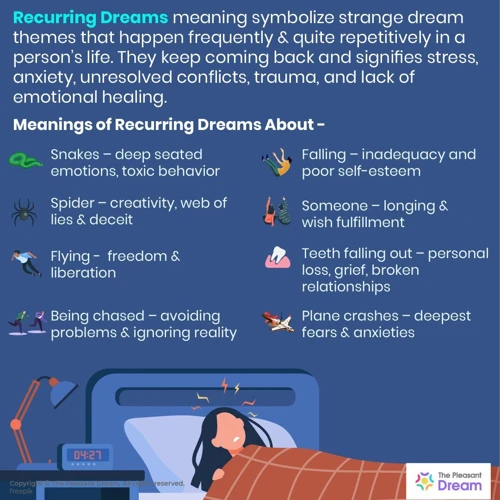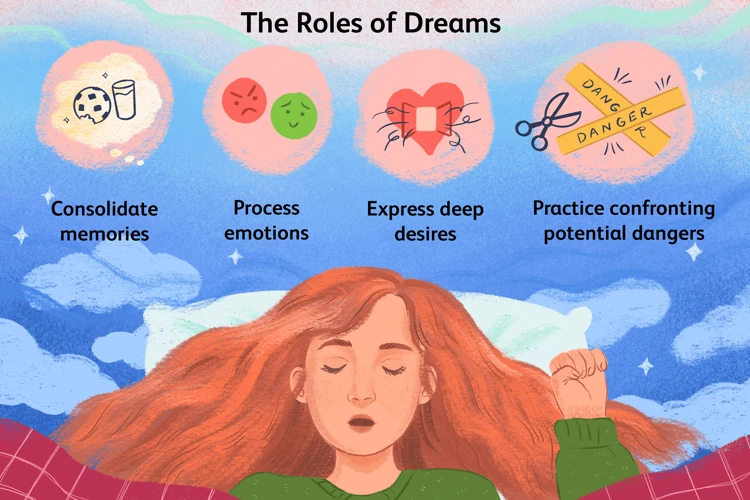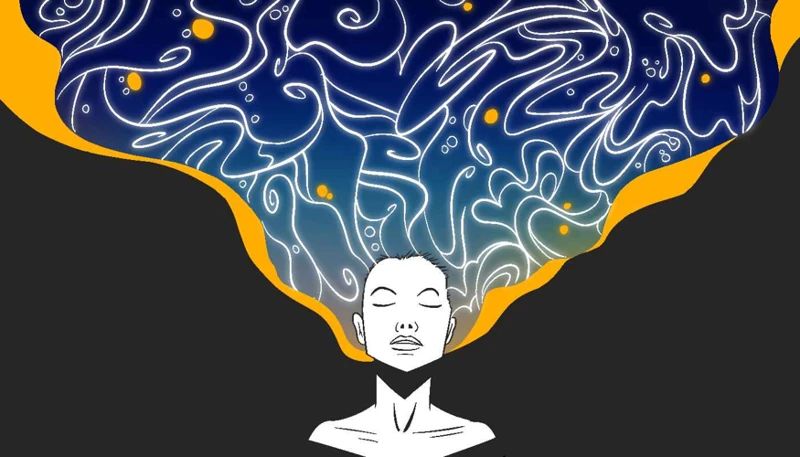Have you ever wondered why certain dreams keep recurring in your sleep? Perhaps there is a deep emotional connection that remains unresolved within you. The Role of Unresolved Emotions in Recurring Dreams seeks to explore this intriguing phenomenon and shed light on the connection between our unprocessed emotions and the recurring dreams we experience. By understanding the significance of these dreams and learning how to resolve the emotions they represent, we can embark on a journey of self-discovery and personal growth. Join us as we dive into the fascinating world of recurring dreams and their hidden messages.
What Are Recurring Dreams?

Recurring dreams are dreams that repeat themselves with similar themes, symbols, or scenarios across multiple nights or over an extended period of time. They can occur in different forms, such as nightmares or mundane everyday scenarios. These dreams often leave us with a sense of familiarity, as if we have experienced them before. While the content of recurring dreams may vary from person to person, they often carry underlying emotions that remain unresolved. These dreams have a way of capturing our attention and urging us to explore their deeper meaning. By delving into the symbolism and emotions of recurring dreams, we can gain valuable insights into our subconscious mind and the unresolved issues that require our attention. To understand the significance of recurring dreams, it’s essential to examine the connection between our emotions and dreams.
The Connection Between Emotions and Dreams

Emotions and dreams share a profound and intricate connection, with our emotions serving as the building blocks of our dreams. Emotions fuel the content and intensity of our dreams, shaping their narrative and imagery. Dreams often reflect the unresolved emotions we carry from our waking lives, offering a symbolic outlet for us to process and confront these unresolved feelings. These emotions can stem from a variety of sources, such as daily stress, past traumas, or unexpressed desires. Understanding the role of emotions in our dreams allows us to decode the hidden messages they convey, providing us with valuable insights into our subconscious mind and emotional well-being. By exploring the symbolic meaning of emotions in dreams, we can gain a deeper understanding of our inner psyche and the ways in which our dreams reflect our real-life feelings.
1. Emotions as the Building Blocks of Dreams
Emotions play a fundamental role in shaping our dreams, acting as the building blocks that give them shape, depth, and meaning. Emotions are the fuel that drives the narrative of our dreams, influencing the events, characters, and settings we encounter while we sleep. They serve as a powerful conduit for our subconscious to communicate with us, expressing our deepest desires, fears, and unresolved issues. When we experience intense emotions during waking life, they can leave a lasting imprint on our subconscious mind, and these emotions often find their way into our dreams. In a way, dreams act as a vehicle for us to process and make sense of the emotional experiences we encounter in our daily lives. By exploring the symbolic meaning of emotions in dreams, we can gain a deeper understanding of ourselves and the impact our emotions have on our dream world.
2. The Role of Unresolved Emotions
Within the realm of recurring dreams, unresolved emotions play a critical role. These emotions serve as a catalyst for the repetitive nature of these dreams, emphasizing the need for resolution and understanding. When we experience intense emotions during waking life and fail to fully process or address them, they can manifest in our dreams as a way of seeking resolution. The mind uses dreams as a means of processing and working through unresolved emotional experiences, allowing us to explore and release these emotions in a safe and therapeutic way. Unresolved emotions in recurring dreams often reflect underlying issues or conflicts that require our attention in order to achieve emotional healing and growth. By analyzing and interpreting the emotions in our dreams, we can gain valuable insights into our real-life feelings and uncover hidden aspects of ourselves that are in need of acknowledgment and resolution. Understanding the role of unresolved emotions is essential in unlocking the profound messages hidden within recurring dreams.
Common Types of Recurring Dreams

Recurring dreams can manifest in various forms, each with its own unique emotional themes. Nightmares reflecting fear and anxiety are a common type of recurring dream, often characterized by intense feelings of terror and helplessness. These dreams can be triggered by unresolved fears or traumatic experiences. Dreams reflecting sadness and grief often arise from unresolved emotional pain and loss. These dreams may involve encounters with deceased loved ones or reliving past events that caused deep sorrow. Dreams reflecting anger and frustration are another prevalent type of recurring dream, where unresolved feelings of resentment or frustration find expression. These dreams may involve confrontations or situations that evoke anger and irritation. Exploring the emotions behind these recurring dreams can provide valuable insights into our inner emotional landscape and help us address the underlying issues causing distress. By analyzing the symbols and emotions present in these dreams, we can uncover important messages from our subconscious mind.
1. Nightmares Reflecting Fear and Anxiety
- Nightmares reflecting fear and anxiety are a common type of recurring dreams that many individuals experience. These dreams often evoke intense emotions of terror, panic, and unease. They can be characterized by various terrifying scenarios, such as being chased, falling, or being trapped. These nightmares serve as a manifestation of our deepest fears and anxieties, reflecting the unresolved emotions that we may be harboring in our waking lives.
- When we have recurring nightmares related to fear and anxiety, it is essential to pay attention to the specific symbols and situations that appear in these dreams. These symbols can provide valuable insights into the underlying causes of our fears and anxieties. By examining the emotions we experience during these nightmares, we can gain a better understanding of the root causes and work towards resolving them.
- Exploring the meaning of emotions in dreams can be a helpful approach when deciphering recurring nightmares reflecting fear and anxiety. This technique involves analyzing the emotions we feel in the dream and comparing them to our real-life feelings. By understanding the connection between our dream emotions and our waking emotions, we can begin to unravel the unresolved issues that contribute to these recurring nightmares.
- It’s important to remember that recurring nightmares are not meant to simply frighten us, but rather to draw our attention to the unresolved emotions we need to address. By confronting our fears and anxieties head-on, we can gradually reduce the frequency and intensity of these recurring nightmares and work towards a greater sense of peace and well-being.
2. Dreams Reflecting Sadness and Grief
Sadness and grief are common emotions that can manifest in recurring dreams. These dreams often revolve around themes of loss, separation, or mourning. In these dreams, you may find yourself reliving past experiences or encountering situations that remind you of the sadness or grief you have felt in your waking life.
One possible scenario in these dreams is revisiting the death of a loved one or attending a funeral. These dreams can feel incredibly real and evoke strong emotions, allowing you to process and come to terms with your feelings of sadness and grief.
It is important to note that these dreams are not necessarily negative or distressing. They provide an opportunity for you to explore and express your suppressed emotions in a safe and controlled environment. Through these dreams, you may find solace, closure, or even a chance to say goodbye to someone or something you have lost.
If you are experiencing recurring dreams reflecting sadness and grief, it may be helpful to explore the connection between your dream emotions and your real-life feelings. Keeping a dream journal and analyzing the symbols and themes in your dreams can provide valuable insights into what is triggering these emotions and how you can begin to heal.
3. Dreams Reflecting Anger and Frustration
Dreams reflecting anger and frustration can be intense and emotionally charged. These dreams often involve scenarios where we find ourselves expressing anger towards someone or being the target of someone’s anger. It is important to understand that dreams are symbolic representations of our emotions, not literal depictions of actual events. The anger and frustration depicted in these dreams may not necessarily be directed at specific individuals, but rather represent unresolved feelings within ourselves.
These recurring dreams can serve as a reflection of our inner conflicts and the need to confront and process our anger. They may stem from unresolved issues in our waking lives, such as unexpressed frustrations, unresolved conflicts, or feelings of powerlessness. The dreams present an opportunity for us to explore and acknowledge these repressed emotions.
By analyzing the details of the dream, such as the people involved, the location, and the actions taken, we can gain insights into the source of our anger and frustration. Keeping a dream journal can be a helpful tool in identifying patterns and exploring the underlying emotions in more depth. Once we recognize these emotions and their triggers, we can work towards releasing them and finding healthier ways to express our anger in our waking lives.
The Significance of Resolving Unresolved Emotions in Dreams

Resolving unresolved emotions in dreams can have a profound impact on our emotional well-being and personal growth. Emotional release and healing are key benefits of addressing these unresolved emotions. When we confront and process our emotions within the context of our dreams, we allow ourselves to release pent-up feelings and find closure. This release can lead to a sense of relief and catharsis, enabling us to move forward with a lighter emotional burden. Exploring these emotions can lead to increased self-awareness. By dissecting the symbolism and meanings behind our dreams, we gain deeper insights into our own feelings and behaviors. This self-awareness allows us to make positive changes in our lives and develop healthier coping mechanisms. Additionally, resolving unresolved emotions in dreams can facilitate transformation and growth. By acknowledging and working through these emotions, we can learn valuable lessons, overcome obstacles, and evolve as individuals. The significance of resolving unresolved emotions in dreams lies in the potential for emotional healing, self-discovery, and personal development.
1. Emotional Release and Healing
Emotional release and healing is one of the major benefits of resolving unresolved emotions in recurring dreams. When we experience recurring dreams that evoke strong emotions, it is an indication that there are deep-seated feelings within us that need to be acknowledged and addressed. By exploring and understanding these emotions, we can allow ourselves to fully experience and process them. This process of emotional release can be cathartic and therapeutic, providing a sense of relief and freedom. Through our dreams, we are given the opportunity to express and release these emotions in a safe and controlled environment, enabling us to heal and move forward in our waking lives.
2. Increased Self-Awareness
- Self-reflection: Resolving unresolved emotions in recurring dreams can lead to increased self-awareness. As we delve into the emotions that surface in our dreams, we gain insight into our inner world, desires, fears, and motivations. This self-reflection allows us to understand ourselves better and make conscious choices in our waking lives.
- Acknowledging patterns: Recurring dreams often point to recurring patterns in our lives. By resolving the emotions associated with these dreams, we become more aware of repetitive behaviors, beliefs, or situations that may be holding us back or causing dissatisfaction. This awareness enables us to break free from negative patterns and make positive changes in our lives.
- Connecting with emotions: Exploring the emotions in recurring dreams helps us to connect with our authentic feelings. We often suppress or ignore certain emotions in our daily lives, but these emotions find a way to manifest in our dreams. By recognizing and understanding these emotions, we can learn to express them in a healthy and constructive way, leading to greater emotional well-being.
- Gaining clarity: Resolving unresolved emotions in dreams provides clarity and insight into unresolved issues or conflicts that may be affecting us. By addressing these emotions and understanding their origin, we can make informed decisions and take steps towards resolving the underlying issues in our waking lives.
- Empowerment: Increased self-awareness through resolving unresolved emotions in dreams empowers us to take control of our lives. As we gain a deeper understanding of ourselves and the emotional baggage we carry, we can make choices that align with our true desires and values, leading to a more fulfilling and authentic life.
3. Transformation and Growth
One of the significant outcomes of resolving unresolved emotions in dreams is transformation and growth. When we engage with our recurring dreams and work towards resolving the emotions they represent, we open ourselves up to a process of personal evolution. By acknowledging and addressing our underlying emotions, we can initiate a transformative journey towards healing and self-discovery. Resolving unresolved emotions enables us to release negative patterns and make positive changes in our lives. It empowers us to let go of past hurts, traumas, and limiting beliefs that may be holding us back. Through this process, we can experience personal growth, develop new perspectives, and enhance our overall well-being.
Techniques to Explore and Resolve Unresolved Emotions in Dreams
Exploring and resolving unresolved emotions in dreams can be a transformative and healing process. There are various techniques that can be helpful in this journey:
- Dream Journaling and Analysis: Keeping a dream journal and writing down the details of your dreams can provide valuable insights. Reflect on the emotions, symbols, and themes that arise in your dreams. Analyze patterns and recurring elements to gain a deeper understanding of the unresolved emotions they represent.
- Visualization and Imagery: Engaging in visualization exercises or using imagery techniques can help you revisit your dreams and explore the emotions associated with them. Visualize yourself in the dream scenario and imagine different outcomes or resolutions to the emotional conflicts.
- Seeking Professional Help: If you find it challenging to navigate your dreams and unresolved emotions on your own, consider consulting a therapist or dream analyst. They can provide guidance and help you interpret the emotions and symbols in your dreams, ultimately aiding in the resolution process.
By utilizing these techniques, you can gain a deeper understanding of your recurring dreams and begin the journey of resolving the unresolved emotions they hold. Embracing this process can lead to personal growth, emotional healing, and a greater sense of self-awareness.
1. Dream Journaling and Analysis
1. Dream Journaling and Analysis: Dream journaling is a powerful technique that can help uncover the underlying emotions in recurring dreams. By keeping a journal next to your bed and jotting down your dreams upon waking, you can capture the details, symbols, and emotions present in each dream. Once you have a collection of dreams recorded, take some time to analyze them. Look for patterns, recurring themes, and common emotions. Notice any unresolved feelings that consistently appear in your dreams. Reflect on the symbolism and imagery that stands out to you. This process of journaling and analysis allows you to gain a deeper understanding of the emotions embedded in your dreams and provides a starting point for resolving them. Additionally, by revisiting your dream journal over time, you may notice patterns and connections between your dreams and your waking life, unlocking valuable insights and self-awareness.
2. Visualization and Imagery
Visualization and imagery techniques can be powerful tools for exploring and resolving unresolved emotions in recurring dreams. When we visualize and create imagery related to our dreams, we tap into our subconscious mind and gain a deeper understanding of the emotions and experiences that manifest in our dreams. One technique that can be helpful is dream replay, where we mentally replay the dream and visualize it with as much detail as possible. This allows us to immerse ourselves in the dream and connect with the emotions that arise. Another technique is creating a visual representation of the dream, either through drawing or using images or symbols that resonate with the dream’s themes and emotions.
Visualization and imagery can also be used to evoke and explore specific emotions within the dream. By intentionally visualizing scenarios or symbols associated with unresolved emotions, we can confront and process these emotions in a safe and controlled manner. This process can lead to a deeper understanding of the underlying issues and facilitate emotional healing and resolution.
To enhance the effectiveness of visualization and imagery techniques, it can be beneficial to incorporate relaxation exercises such as deep breathing or meditation. This allows us to enter a calm and receptive state of mind, making it easier to engage with the dream imagery and access the associated emotions. Incorporating these techniques into a regular practice can help us develop a stronger connection with our dreams and facilitate the resolution of unresolved emotions.
3. Seeking Professional Help
- Seeking Professional Help: When recurring dreams persist and the emotions they evoke become overwhelming or disruptive to daily life, it may be beneficial to seek the guidance of a professional. A therapist or counselor experienced in dream analysis and emotional healing can provide valuable support and guidance. They can help you explore the underlying emotions in your dreams, identify patterns, and uncover the deeper meaning behind them. Through various therapeutic techniques, such as talk therapy, cognitive-behavioral therapy, or even hypnotherapy, they can assist you in resolving unresolved emotions and finding healing and resolution. Professional help can offer a safe and non-judgmental space for you to share and process your dreams, providing you with personalized strategies to address and integrate your unprocessed emotions into your waking life. Remember, seeking professional help is a proactive step towards self-discovery and emotional well-being.
Conclusion
In conclusion, the role of unresolved emotions in recurring dreams is a fascinating topic that highlights the deep connection between our emotional state and our dreams. Recurring dreams serve as a powerful tool for self-discovery and personal growth, as they provide us with valuable insights into our unresolved emotions and unaddressed issues. By exploring and resolving these emotions in our dreams, we can experience emotional release, healing, and increased self-awareness. Through techniques such as dream journaling, visualization, and seeking professional help, we can navigate our recurring dreams and gain a deeper understanding of ourselves. Embracing the journey of resolving unresolved emotions in dreams can lead to transformation and growth in our waking lives. So, next time you find yourself in the midst of a recurring dream, take a moment to reflect on the emotions it evokes and embark on a path of self-discovery.
Frequently Asked Questions
1. Can recurring dreams be caused by unresolved emotions?
Yes, recurring dreams often stem from unresolved emotions. These dreams serve as a way for our subconscious mind to bring attention to unprocessed feelings or experiences that we may have suppressed or ignored.
2. Do recurring dreams always have the same content?
No, recurring dreams can vary in content, but they typically share similar themes, symbols, or scenarios. While the details may differ, the underlying emotions and unresolved issues remain consistent.
3. Are recurring dreams always negative or frightening?
No, recurring dreams can be both positive and negative. While nightmares are a common form of recurring dreams, mundane or ordinary dreams can also repeat themselves. The emotional intensity is what often defines the recurring nature of these dreams.
4. Can recurring dreams be a reflection of real-life unresolved feelings?
Absolutely. Recurring dreams can reflect unresolved feelings from real-life situations. These dreams provide an opportunity to explore our emotions and confront any unresolved issues that may be manifesting in our subconscious mind during sleep.
5. How can recurring dreams help us understand our subconscious mind?
Recurring dreams offer a unique glimpse into our subconscious mind by highlighting the unresolved emotions and issues that require our attention. By analyzing the symbolism and emotions in these dreams, we can gain insights and a deeper understanding of ourselves.
6. Are recurring dreams a sign of psychological or emotional distress?
Recurring dreams are not necessarily a sign of distress, but they often indicate underlying emotions that need to be addressed. They can serve as a catalyst for personal growth and healing by bringing attention to unresolved issues.
7. Can recurring dreams be a form of self-reflection?
Yes, recurring dreams can act as a form of self-reflection. They provide an opportunity to explore our own emotions, beliefs, and behaviors, allowing us to gain self-awareness and make positive changes in our lives.
8. Are recurring dreams more common in certain age groups?
While recurring dreams can occur at any age, they are more commonly experienced by young adults. This may be due to the transitional phases and emotional changes that often occur during this period of life.
9. Can recurring dreams occur during daytime naps?
Yes, recurring dreams can occur during daytime naps as well. The timing of the dream is not as significant as the repetition and the underlying emotions attached to it.
10. How can resolving unresolved emotions in recurring dreams benefit us?
Resolving unresolved emotions in recurring dreams can lead to emotional release, healing, increased self-awareness, and personal growth. By addressing these emotions, we can bring about positive changes in our waking life and live more fulfilling and authentic lives.








